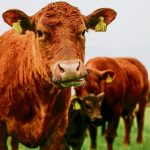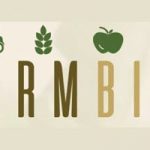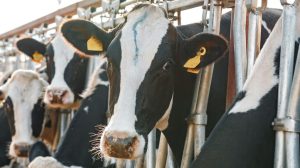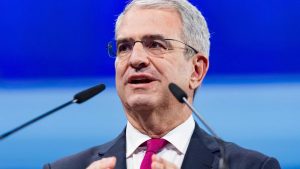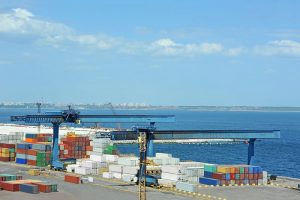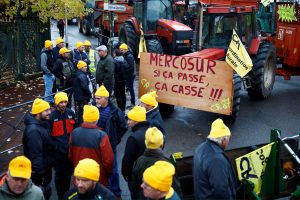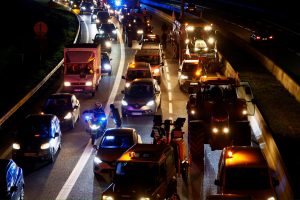
Farmer protests across Europe are heating up again leading up to the elections in Europe, and the outcome of the European Parliament elections over the weekend sent a clear message. One agricultural economist says it’s not just frustrations from farmers that fueled the election results. It’s also EU voters who are worried about the cost of environmental reforms.
The issue has been brewing for the past year, with farmer protests showing the frustration.
“Things have been slowly coming to the boil over the last 12 months or so. But really, the origins of all this are traceable back to when the last European Commission came into place, which was in 2019,” says Trevor Donnellan, who is the head of economics at the Rural Economy Research Centre based in Ireland.
After the 2019 election, and the Green Party become more dominant, the push to fast-track climate policies and regulation was swift.
“European environmental policy around agriculture is significant. That’s the first thing people in the us need to understand, and it is becoming more significant,” he says. Regulation around things like greenhouse gas emissions is becoming an issue regulation around water quality, the usage of fertilizers, what we do with animal waste, these are all becoming more serious issues.”
In Donnellan’s own country of Ireland, agriculture is required to reduce greenhouse gas emissions by 25 percent by 2030. He says for a country that has a large dairy and beef production footprint, that could require farmers to reduce their herd size to reach such a lofty goal.
In the Netherlands, environmental policy has already forced livestock producers to get rid of animals, even pushing some farmers out of business.
Those increased regulations are what propelled farmer protests over the past year. The scene drew international attention with farmers using tractors to block traffic on major highways across Europe, to even protesting outside the parliament, and it’s those protests that sent a loud message ahead of the elections.
“The protests, I think, have been significant in making politicians and the general public aware of the importance of taking into account the farmer perspective in setting all these regulations,” says Donnellan.
That message was apparently on the minds of voters this past weekend as the 27-nation bloc’s parliament membership shifted to the right. The surge by Nationalist and Populist parties will make it much harder for the assembly to approve legislation on issues ranging from climate change to agriculture policy.
“When we look at it in terms of what it might mean, for agriculture, the kind of political perspective in this new parliament has moved a little bit further to the right, which probably is a little bit more aligned with the interests of farmers. And farming is very important. In the context of the European Union, it’s one of the reasons why the European Union was created in the first place,” Donnellan explains.
He says that could mean less of an emphasis on green issues than what the EU has seen dominate policy the past 5 year.
“Looking at it from an agricultural point of view, it could mean that the pace of change in terms of pushing the environmental regulation could maybe slow down a little bit, or there might be a little bit of a rethink on some aspects of it. But it’s probably a parliament that might be a little bit more sympathetic to the concerns of farmers than the one that has just come to an end,” he adds.
While it’s not clear exactly what will happen with EU climate policy in the years ahead, Donnellan says what’s happening in Europe is setting an example for the rest of the world.
“That might sound a little bit grand, but that’s kind of the thinking behind this politically in that Europe will demonstrate to the rest of the world what’s achievable in terms of having an more environmentally compliant economy, including in agriculture, and that the rest of the world should potentially follow suit from a policy perspective in the future,” he says.
You can now read the most important #news on #eDairyNews #Whatsapp channels!!!
🇺🇸 eDairy News INGLÊS: https://whatsapp.com/channel/0029VaKsjzGDTkJyIN6hcP1K

